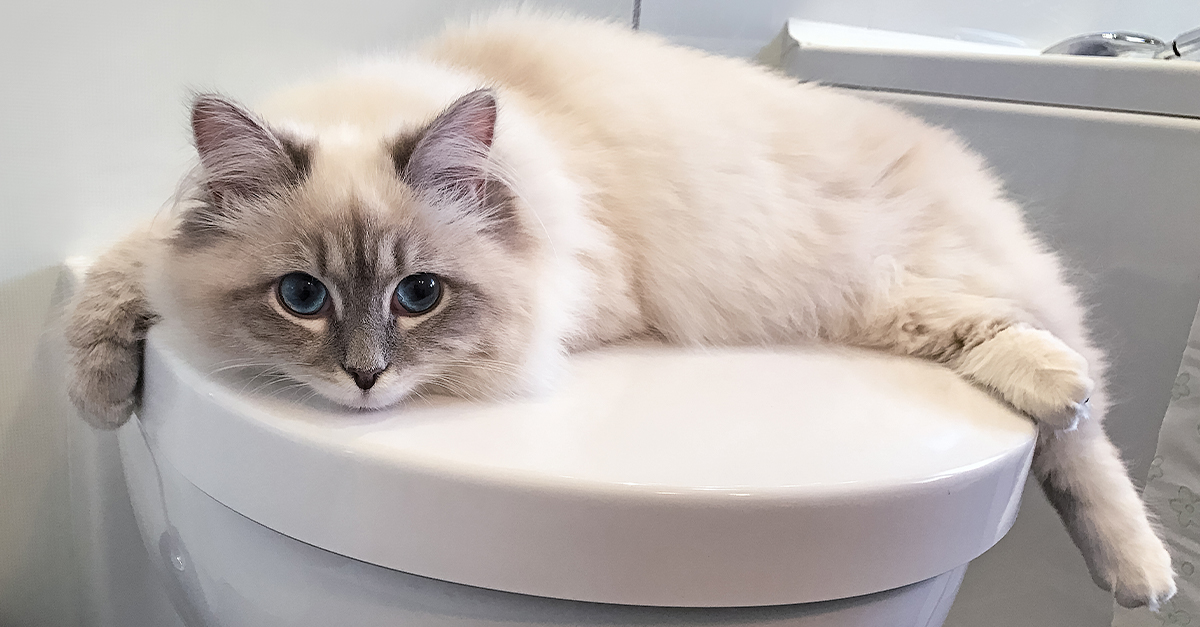Prevent Toilet Disasters: Don't Flush Cat Poop Down Your Toilet - Expert Advice
Prevent Toilet Disasters: Don't Flush Cat Poop Down Your Toilet - Expert Advice
Blog Article
What are your thoughts with regards to Don’t flush cat feces down the toilet?

Introduction
As feline proprietors, it's essential to be mindful of exactly how we take care of our feline pals' waste. While it might appear convenient to flush pet cat poop down the toilet, this practice can have damaging effects for both the setting and human health.
Alternatives to Flushing
Thankfully, there are much safer and extra liable methods to take care of feline poop. Take into consideration the adhering to choices:
1. Scoop and Dispose in Trash
One of the most common method of getting rid of pet cat poop is to scoop it into a naturally degradable bag and toss it in the garbage. Make certain to use a dedicated litter scoop and deal with the waste immediately.
2. Usage Biodegradable Litter
Go with eco-friendly pet cat litter made from products such as corn or wheat. These litters are eco-friendly and can be securely disposed of in the garbage.
3. Hide in the Yard
If you have a backyard, think about hiding feline waste in an assigned location away from vegetable gardens and water sources. Be sure to dig deep adequate to stop contamination of groundwater.
4. Mount a Pet Waste Disposal System
Purchase an animal waste disposal system specifically designed for pet cat waste. These systems make use of enzymes to break down the waste, lowering smell and environmental impact.
Wellness Risks
Along with ecological issues, flushing pet cat waste can additionally pose health and wellness dangers to human beings. Feline feces may contain Toxoplasma gondii, a bloodsucker that can trigger toxoplasmosis-- a potentially extreme disease, particularly for expecting women and individuals with damaged immune systems.
Ecological Impact
Purging cat poop presents dangerous microorganisms and parasites into the water, presenting a significant danger to marine ecological communities. These contaminants can adversely impact aquatic life and compromise water high quality.
Final thought
Accountable pet possession expands beyond giving food and shelter-- it additionally includes proper waste administration. By refraining from flushing cat poop down the toilet and going with alternative disposal techniques, we can lessen our ecological footprint and shield human health and wellness.
Why Can’t I Flush Cat Poop?
It Spreads a Parasite
Cats are frequently infected with a parasite called toxoplasma gondii. The parasite causes an infection called toxoplasmosis. It is usually harmless to cats. The parasite only uses cat poop as a host for its eggs. Otherwise, the cat’s immune system usually keeps the infection at low enough levels to maintain its own health. But it does not stop the develop of eggs. These eggs are tiny and surprisingly tough. They may survive for a year before they begin to grow. But that’s the problem.
Our wastewater system is not designed to deal with toxoplasmosis eggs. Instead, most eggs will flush from your toilet into sewers and wastewater management plants. After the sewage is treated for many other harmful things in it, it is typically released into local rivers, lakes, or oceans. Here, the toxoplasmosis eggs can find new hosts, including starfish, crabs, otters, and many other wildlife. For many, this is a significant risk to their health. Toxoplasmosis can also end up infecting water sources that are important for agriculture, which means our deer, pigs, and sheep can get infected too.
Is There Risk to Humans?
There can be a risk to human life from flushing cat poop down the toilet. If you do so, the parasites from your cat’s poop can end up in shellfish, game animals, or livestock. If this meat is then served raw or undercooked, the people who eat it can get sick.
In fact, according to the CDC, 40 million people in the United States are infected with toxoplasma gondii. They get it from exposure to infected seafood, or from some kind of cat poop contamination, like drinking from a stream that is contaminated or touching anything that has come into contact with cat poop. That includes just cleaning a cat litter box.
Most people who get infected with these parasites will not develop any symptoms. However, for pregnant women or for those with compromised immune systems, the parasite can cause severe health problems.
How to Handle Cat Poop
The best way to handle cat poop is actually to clean the box more often. The eggs that the parasite sheds will not become active until one to five days after the cat poops. That means that if you clean daily, you’re much less likely to come into direct contact with infectious eggs.
That said, always dispose of cat poop in the garbage and not down the toilet. Wash your hands before and after you clean the litter box, and bring the bag of poop right outside to your garbage bins.
https://trenchlesssolutionsusa.com/why-cant-i-flush-cat-poop/

I stumbled upon that blog posting on How to Dispose of Cat Poop and Litter Without Plastic Bags while doing a search on the web. If you liked our blog posting please make sure you remember to share it. Thanks so much for taking the time to read it.
Click On This Link Report this page